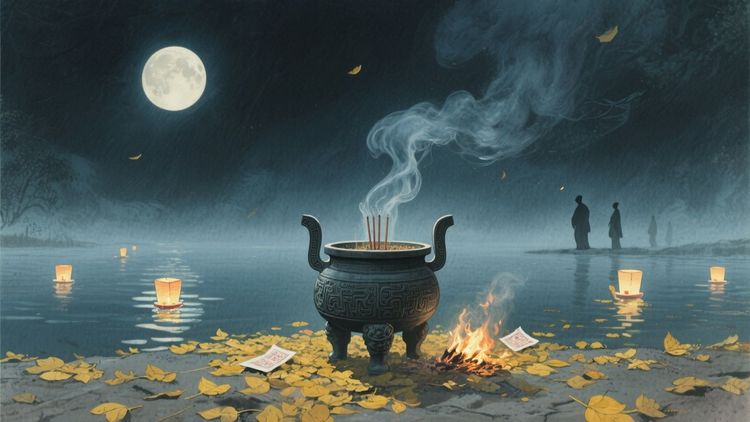
the Zhongyuan Festival
The Zhongyuan Festival is one of China's major traditional holidays, observed on the 14th or 15th day of the seventh lunar month. In 2024, it falls on August 18th (Sunday). Originally termed by Taoism, it is called the "Ullambana Festival" in Buddhism and is commonly known as the Ghost Festival or the Mid-Seventh Month Festival. The Zhongyuan Festival serves not only as a day to honor ancestors but also carries a dual function of expressing gratitude, with filial piety culture at its spiritual core. As one of the four major traditional Chinese sacrificial festivals, the Zhongyuan Festival integrates the historical origins of Confucianism, Buddhism, and Taoism. Its name derives from Taoism, and its customs trace back to ancient Confucian autumn sacrificial rites. By the Song Dynasty, it had evolved into a "three festivals in one day" structure: on the 15th day of the seventh lunar month each year, Taoists worship the Earth Official to judge human virtues and sins, common people make offerings to ancestors and wandering spirits, and Buddhists, influenced by Confucianism, hold Ullambana assemblies to deliver deceased ancestors. As a native Chinese religion deeply shaped by the patriarchal clan system, Taoism emphasizes filial piety, enabling the Zhongyuan ancestor worship customs to take root among the populace. The Zhongyuan Festival features rich and diverse customs, primarily centered on ancestor worship and universal salvation (Putu). On this day, the gates of hell open, releasing spirits from the underworld. Spirits with descendants return home to receive incense and offerings, while masterless, wandering spirits roam freely, seeking sustenance wherever people might be found. Consequently, some regions practice universal salvation rituals called "Zhongyuan Putu," which later developed into grand ceremonial events. Additionally, people prepare abundant offerings and burn paper money to express their remembrance and respect for departed loved ones. The Zhongyuan Festival is not only a traditional occasion for the Chinese nation to honor ancestors but also a crucial moment for strengthening family cohesion and transmitting filial piety. In May 2010, the Zhongyuan Festival (Chiu Chow Benevolent Festival) as declared by the Hong Kong Special Administrative Region was inscribed on the National List of Intangible Cultural Heritage. In 2021, the Laiwu Zhongyuan Festival customs were also included in the fifth batch of National Intangible Cultural Heritage Representative Projects. This demonstrates that the Zhongyuan Festival retains significant cultural value and social meaning in modern society, deserving continued inheritance and promotion.